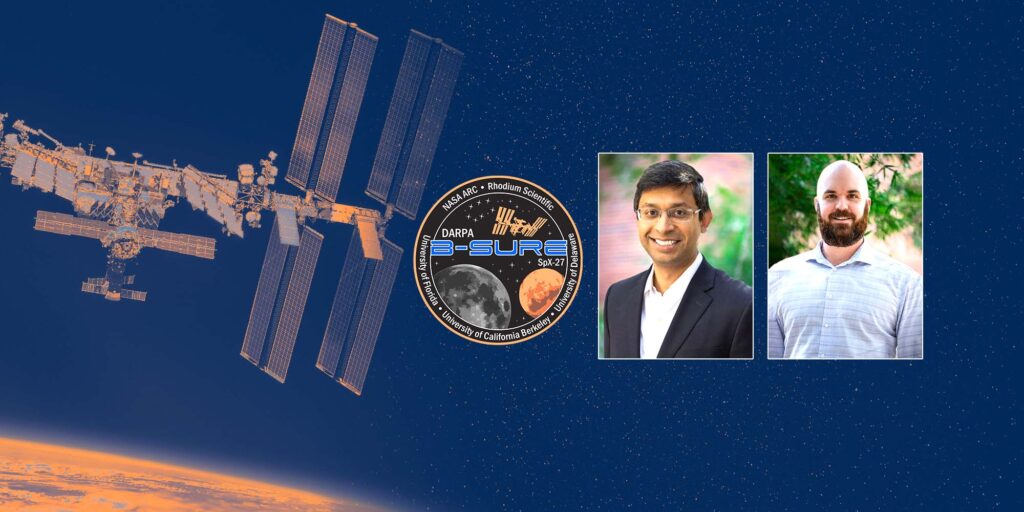UF Will Spearhead DARPA Mission To Pioneer Crucial Biomanufacturing in Space

With the goal of creating a resilient supply chain for a sustained presence in space, researchers at the University of Florida (UF) are bioengineering microbes for experimentation on the International Space Station (ISS) they hope will reliably produce biopolymers, nutraceuticals, and antibiotics in variable gravity conditions.
The space environment is uniquely challenging, with vastly different levels of gravity, radiation, temperature, and pressure, all creating stress on Earth-based biological processes and inhibiting the outputs of microbial biomanufacturing. By providing a better understanding of how microbes adapt and function in the stresses of space, this investigation will support measures to maintain and enhance biomanufacturing output in an environment that must be self-sustaining — where space missions must have everything they need to manufacture necessities.
Leading the project is UF Innovate inventor Amor Menezes, Ph.D., assistant professor in the Department of Mechanical and Aerospace Engineering (MAE). Joining Dr. Menezes’ team are UF colleagues Sean Niemi, Ph.D., a UF Innovate inventor and instructional assistant professor of MAE in the Herbert Wertheim College of Engineering, and Jamie Foster, Ph.D., a professor in the Department of Microbiology and Cell Science at UF’s Institute of Food and Agricultural Sciences (IFAS), as well as personnel from the University of California, Berkeley, the University of Delaware, NASA Ames Research Center, and Rhodium Scientific, a mission integrator who translates lab protocols for spaceflight operations and who has facilities at NASA Kennedy Space Center.
Learn more about UF Will Spearhead DARPA Mission To Pioneer Crucial Biomanufacturing in Space